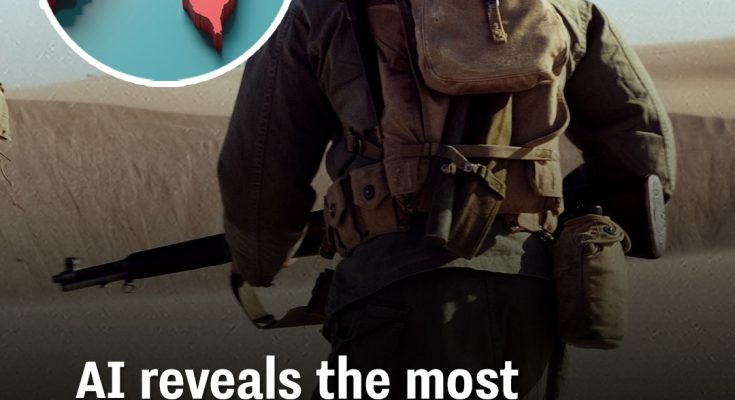ChatGPT has revealed what it believes to be the most ‘dangerous’ threat in the world right now, indicating that events involving this particular conflict could escalate enough to start World War 3.
Artificial intelligence has already shown its bizarre capabilities to predict the future, with strange recreations of famous philosopher Nostradamus offering stunning prophecies, but it can also outline its evaluation of current political events.
OpenAI’s ChatGPT has provided an argument that U.S. President Donald Trump’s tariffs could be the cause of a major conflict in the near future, and it has also estimated that 50 to 100 million people could potentially die if World War 3 were to break out right now.
Its latest prediction outlines what the most ‘dangerous’ threats to global warfare are, highlighting particular ongoing or highly tense conflicts that could spiral far beyond what they might initially seem.
What it has highlighted as the number one most likely cause for World War 3 right now is a potential conflict that would be struck between the United States and China over Taiwan.
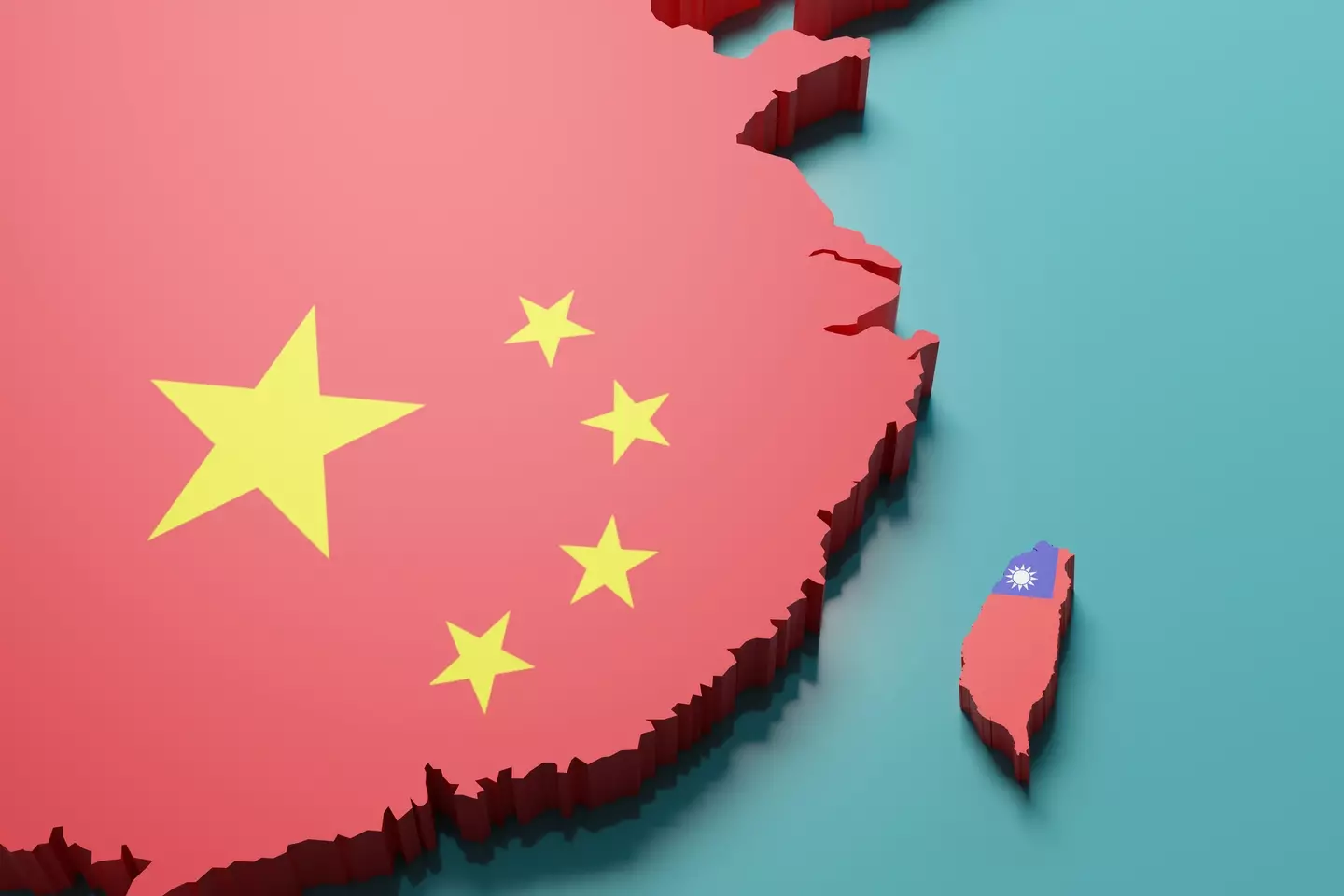
Conflict involving China, Taiwan, and the United States is the most likely to spiral into World War 3 according to ChatGPT (Getty Stock)
We’ve already seen video games from over a decade ago correctly predict the tense relations between China and America this year, but it’s not hard to see how a dispute between the two global superpowers could spiral into something far more devastating.
“If China attempts to invade or blockade Taiwan (which it claims as its own), and the U.S. steps in militarily to defend Taiwan (which it’s legally and politically pressured to do), this could spark a direct U.S.-China war,” ChatGPT illustrates.
“That’s not a regional skirmish – that’s the kind of thing that could pull in allies, ripple across economies, and lead to a global military conflict.”
The catalyst behind this particular conflict was also highlighted by the AI when asked about the warning signs that could indicate a World War is on the horizon, as the pressure of allied nations to come to the aid of an attacked country – in this case it would be America assisting Taiwan – would cause a significant domino effect across the rest of the world.
Highlighting why the U.S.-China conflict would be the most dangerous, ChatGPT lists the fact that both countries are nuclear superpowers, alongside the fact that it would hold high stakes when it comes to national pride and global dominance, and that there would also be significant economic consequences.
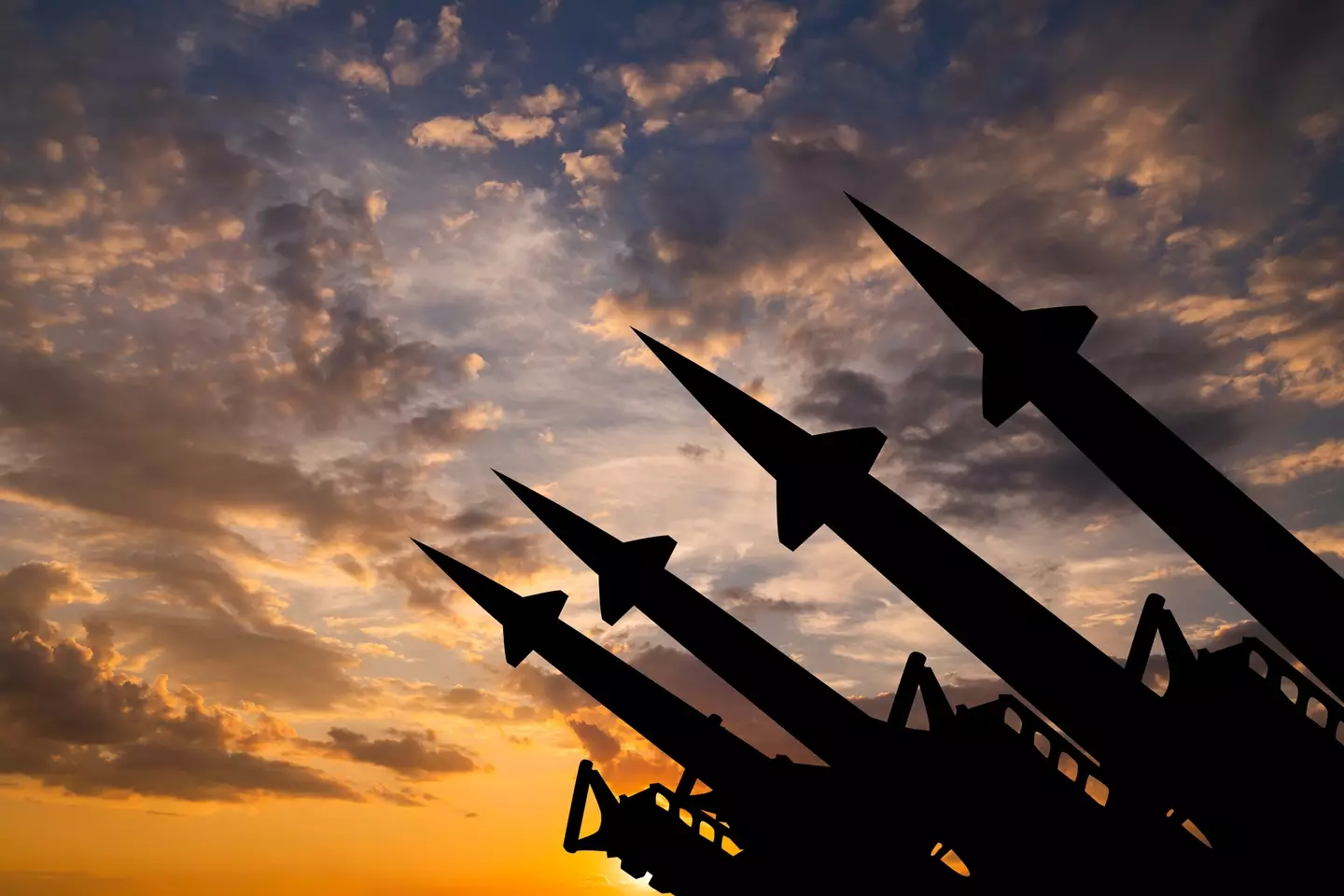
Military prowess plays a major role in the danger that certain conflicts posses (Getty Stock)
When it comes to other major global events that could lead to WWIII, ChatGPT has pointed towards an escalation between Russia and NATO in reference to Ukraine – which would change significantly if the United States backed out of the organization – alongside the Israel and Iran conflict.
There are even a few wildcards which, while currently somewhat unlikely to happen, could spark a major war. These include a surprise attack from North Korea on South Korea or Japan, India and Pakistan’s conflict surrounding Kashmir, AI-controlled military systems causing a misfire, and a miscommunication which leads to an unintended attack.
Featured Image Credit: Getty Stock

Artificial intelligence can offer many intriguing insights into the future if you ask it the right questions, yet its indication of the number one ‘warning sign’ that WWIII is on the way might begin to worry you.
Most people use AI to summarize documents, answer queries, and even generate complex images, yet it seemingly has an alluring ability to predict the future – or at least offer an educated guess at what could happen within certain circumstances.
People have enlisted the advice of an AI-powered Nostradamus and Baba Vanga to look into the years ahead of us with surprising results, and you can even try out a ‘death clock’ that lets you know what age you’ll die and how it’ll happen.
However, the threat of World War 3 is not only more widescale but also arguably far more imminent, and OpenAI’s ChatGPT has issued its own indication of the warning signs that we should be on the lookout for.
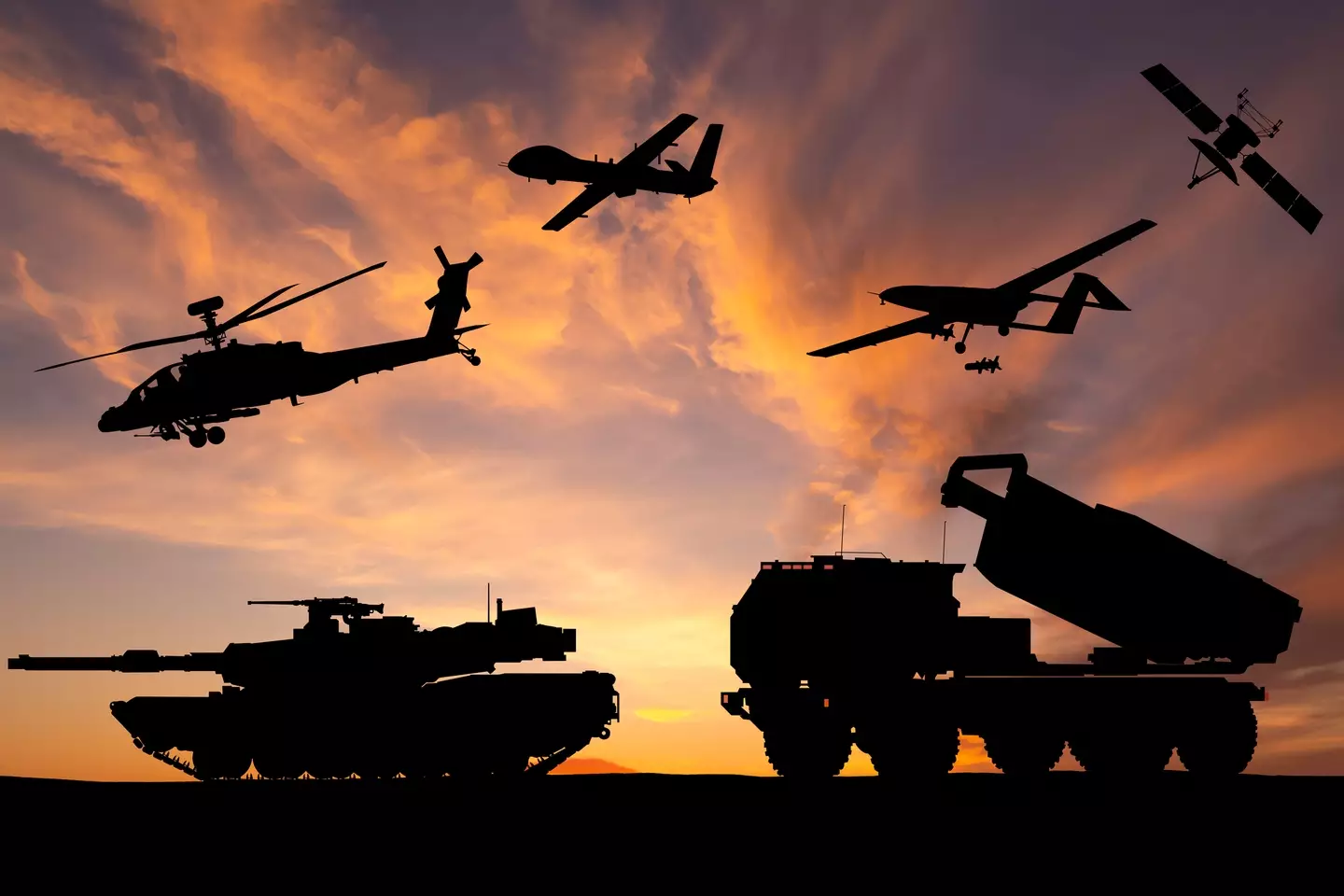
ChatGPT has succinctly outlined the biggest sign of an upcoming World War, and it might worry you (Getty Stock)
When asked what the number one warning sign of an upcoming World War is, ChatGPT weighs up the debates of historians, analysts, and military experts to produce a clear answer:
“When multiple great powers are locked in escalating, unresolved conflict – with no clear way to back down.”
Simplifying the warning signs even further, it illustrates that “the biggest red flag is the breakdown of diplomacy between nuclear or major military powers who are engaging in proxy wars, arms buildups, or territorial threats.”
Essentially, if one of the world’s leading military powers – which also typically coincide with those who posses nuclear weapons – has a major breakdown in relations, typically spurred on by a catalyst event, we could see the beginnings of another World War for the first time in nearly a century.
One of the major reasons why we’ve not seen warfare on the scale of the First or Second World War again though is through the invention and distribution of nuclear weapons, which act as a deterrent through their immense destructive powers.
However, certain triggers could force key nations to engage in direct warfare, which would then in turn pull in allied countries that are obliged to participate through treaty arrangements.
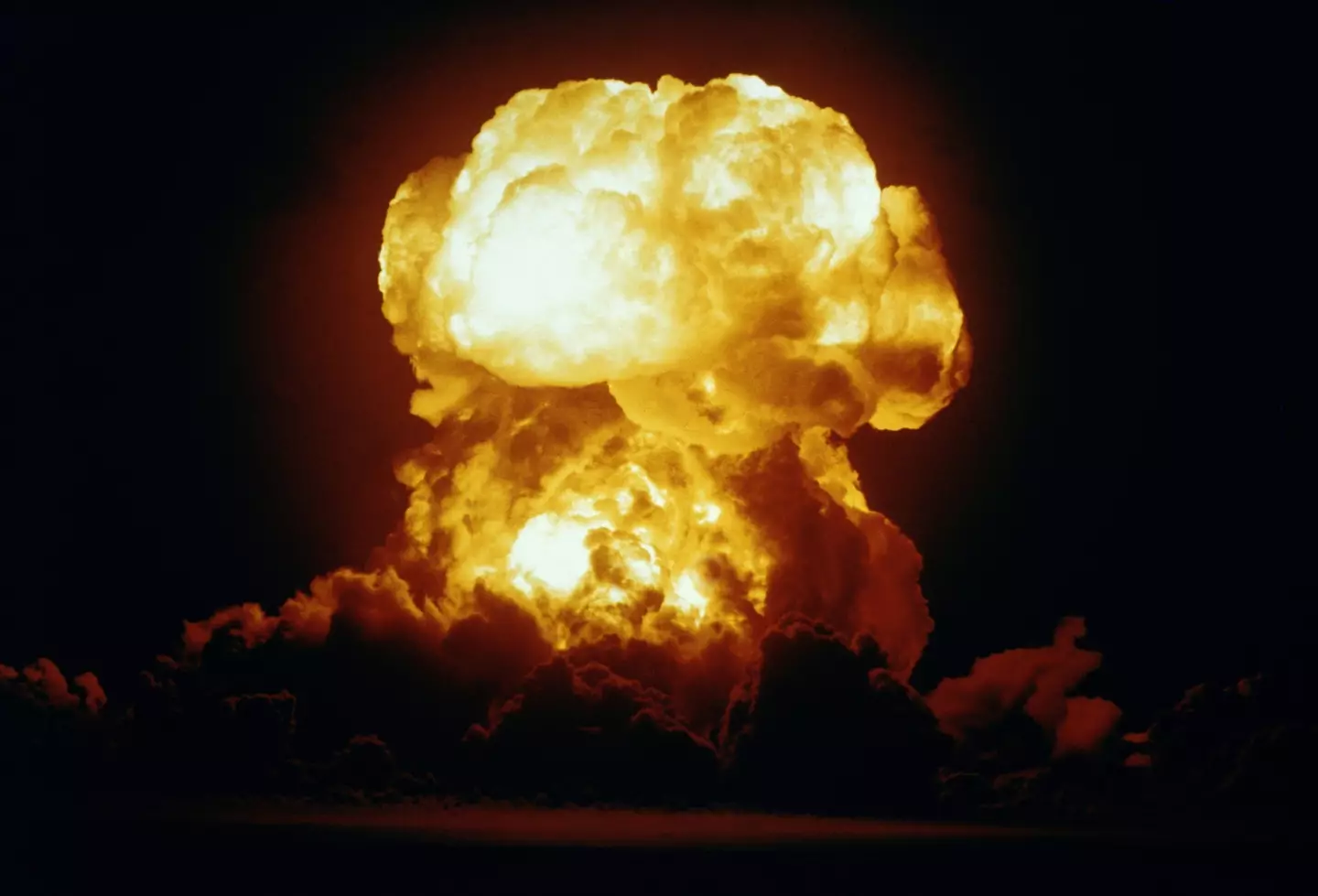
World War 3 would carry the immense threat of nuclear weapons, which might be why it’s not happened yet (Getty Stock)
Looking specifically at conflicts that are currently ongoing, ChatGPT indicates that the most pressing ‘red flag’ that could lead to a new World War today is:
“If the U.S. and China (or Russia) move from economic + cyber warfare to direct military confrontation over Taiwan, Ukraine, or another hotspot. That would trigger global realignments, military escalation, and potentially drag in allies across the globe.”
That worryingly appears to be more than capable of happening considering current events, and all it would likely take would be one major moment before tensions would reach breaking point.
“A lot of signs matter,” ChatGPT continues, “but if you ever see major powers stop talking and start shooting, that’s the moment the world changes.”
If a new World War were to happen then it could cause devastating casualties across the globe too, as ChatGPT has also outlined a ‘horrifying’ death toll of between 50 and 100 million people if conflict was to break out.
Featured Image Credit: Bulgac / Getty

Artificial intelligence might not be able to predict the future with complete certainty, but it’s getting pretty good at offering educated guesses of our potential future.
When it comes to WWIII, it’s predicted the worst countries to be in, the possible triggers of another war and some worrying figures when it comes to estimating death tolls – as well as the number one ‘warning sign’ of a Third World War.
Now, there are recent warnings that Russia could be targeting global internet infrastructure after there was a series of attacks on subsea cables.
In response, military experts have reportedly urged NATO to prepare for potential large-scale internet blackouts.
According to OpenAI’s ChatGPT, the consequences of a global internet shutdown would be nothing short of ‘society-altering massive.’
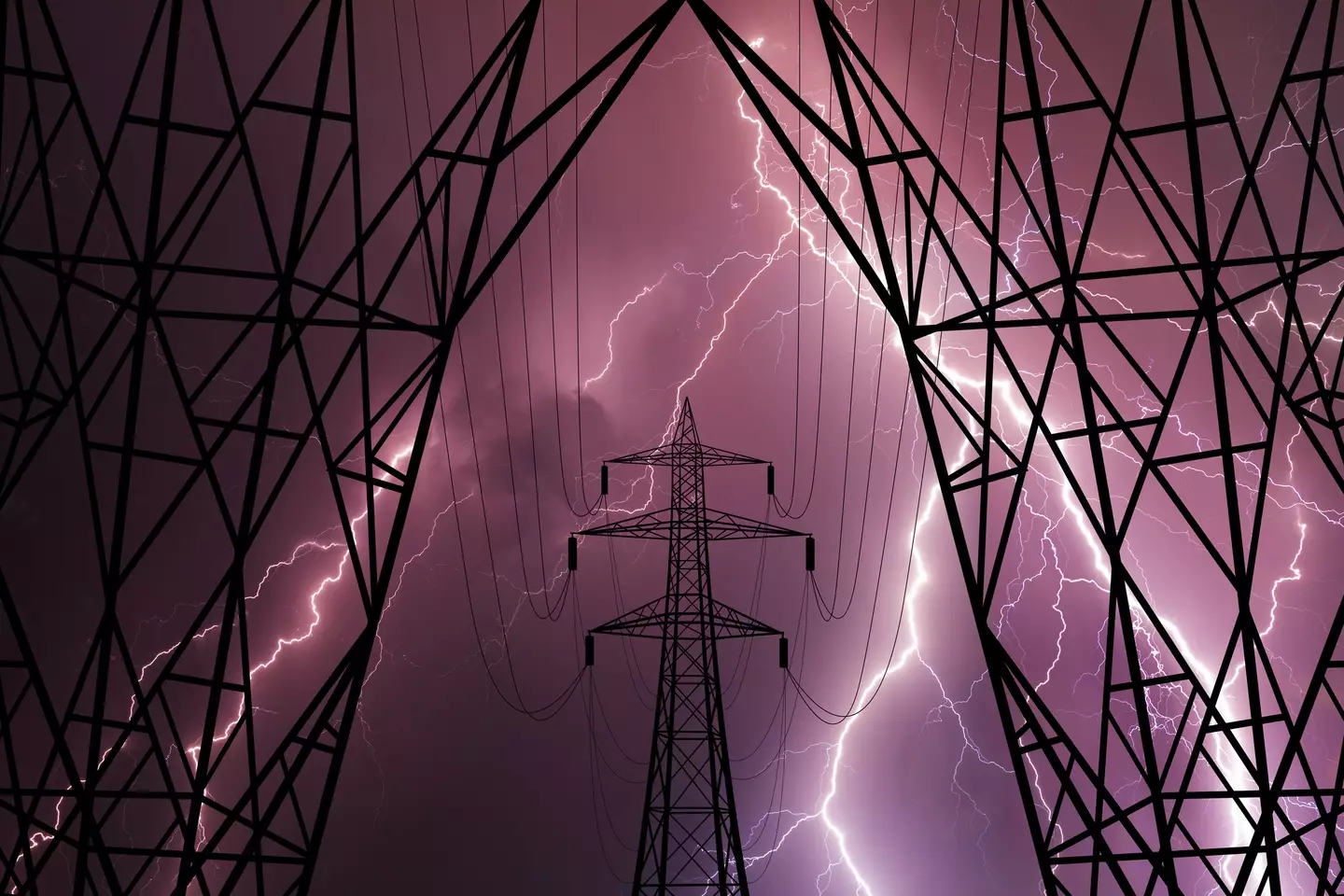
Russia could be targeting global internet infrastructure after a series of attacks on subsea cables / Anton Petrus / Getty
Total communication blackout
The first and probably most notable thing we’d discover is the outage of digital communication, ChatGPT said. This would mean a shutdown of email, messaging apps like Facebook’s Messenger and WhatsApp and video calling apps like Zoom and Slack.
Social media would disappear in an instant, meaning there’s no posting about your post-internet woes on Snapchat or Instagram and streaming services like Netflix and Hulu would no longer operate (maybe it’s time to dig out those old DVDs?)
According to the OpenAI chatbot, mobile networks might hold out for a bit, but most rely heavily on internet infrastructure.
Financial freeze
Online banking and digital payments such as PayPal, Venmo and Apple Pay would all go offline. ChatGPT added that credit card transactions would stop working, as well as some ATMs. Meanwhile, global stock markets would panic as stock exchanges rely on real-time data feeds and connectivity. This, of course, means saying goodbye to all forms of online shopping as Amazon, eBay and Etsy would all cease working.

Millions of digital jobs would vanish overnight / courtneyk / Getty
Travel and emergency systems crash
Without services like Google Maps or Uber, getting around would be a real challenge. Additionally, air traffic control systems use internet-linked protocols and databases and would fail, as per AI.
The problem worsens when emergency services take the internet hit, especially if they rely on cloud-based coordination. Military communications could switch to independent or satellite systems, but there would be major delays in the meantime.
Long-term economic and psychological effects
In the bigger picture, the entire tech and finance industries would collapse or need to completely reinvent themselves. Millions of digital jobs would vanish overnight, leading to a spike in unemployment. Many people would undoubtedly experience a digital withdrawal, while others might adapt to an offline world surprisingly fast.
Governments and businesses would scramble to create private networks or backup systems and fingers would likely be pointed at hackers or rival states, causing further international tensions.
Countries like China that control their own internet infrastructure might bounce back faster, but global communication or surveillance on climate or health would be nearly impossible.
Featured Image Credit: Aitor Diago via Getty

An artificially intelligent chatbot has warned that President Donald Trump’s tariffs could be a ‘potential spark’ for World War III.
The open source AI bot ChatGPT has offered its input into the likelihood of the US trade war turning into an actual global conflict.
Tensions between the US and China are continuing to grow as both countries have been placing increasing fees on each other’s import taxes.
When asked whether Trump’s import tariffs could trigger a third World War, the bot gave its insight.
First off, that is a big and dramatic question but ChatGPT broke down in simple terms what the tariff announcements could mean for the world.
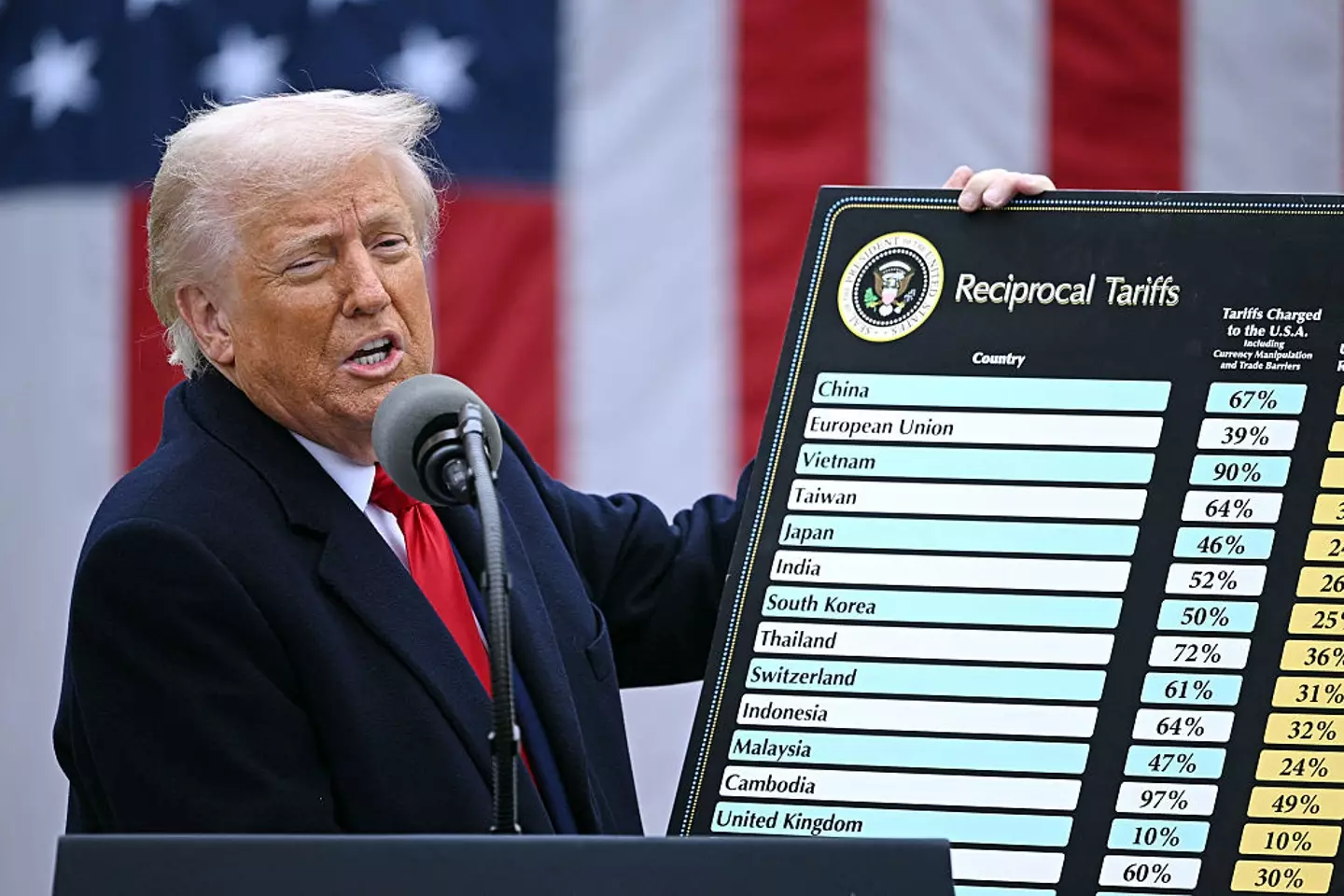
ChatGPT shared its insights on President Trump’s import tariffs (BRENDAN SMIALOWSKI/AFP via Getty Images)
While tariffs themselves aren’t weapons, the bot did point out that they ‘are part of economic warfare’.
This means they do have the ability to disrupt supply chains, damage diplomatic relationships, trigger nationalist or protectionist responses, and weaken alliances – such as NATO or the EU-US relationship.
ChatGPT explained: “If multiple countries respond with escalating economic retaliation, and that’s paired with military buildup, cyber warfare, or aggressive moves in hotspots (like the South China Sea, Taiwan, or Eastern Europe), then yes, the environment becomes much more dangerous.
“That said, war usually involves multiple failures across diplomacy, economics, and military strategy, not just trade policy.”
Instead, it went on to say that tariffs are part of a broader geopolitical tension and could be a potential spark for conflict but not the sole reason.
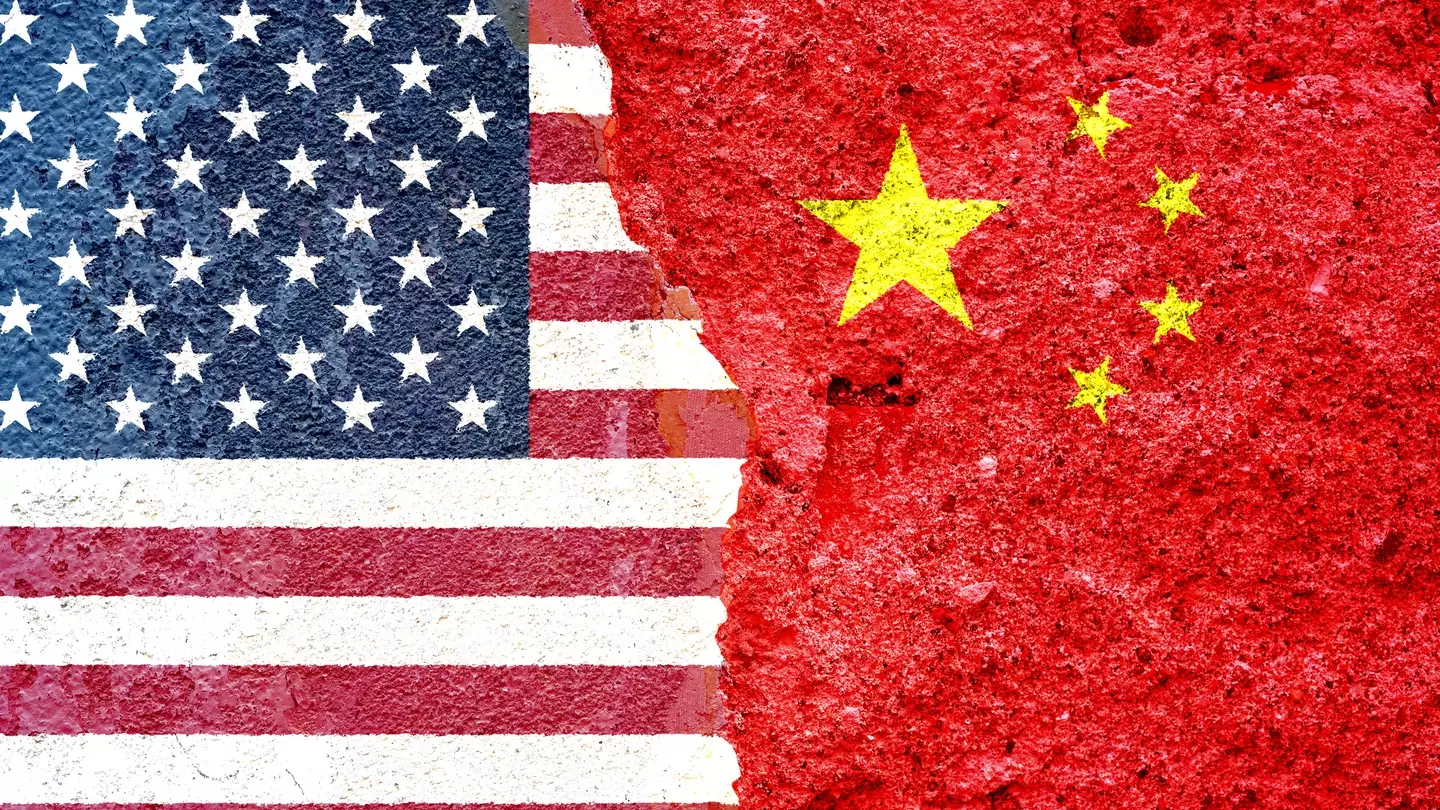

Tensions between the US and China continue to rise (Wong Yu Liang/Getty Images)
Using an example, the chatbot said: “Want a historical parallel? The Smoot-Hawley Tariff in the 1930s worsened the Great Depression and helped destabilize international relations — but it didn’t cause WWII on its own. It just made the world more fragile.”
Analysts are concerned about the tariffs because they fear that Trump’s announcements could undermine global cooperation, accelerate a Cold War-style divide, or push countries into opposing economic blocs – for example, China-Russia-Iran vs US-allied democracies, according to ChatGPT.
The bot continued: “If those tensions spiral out of control, particularly if paired with territorial disputes or accidents between military forces, the risks get real.”
However, this doesn’t mean that the tariffs are a sign of growing tensions that are pointing towards a World War.
There are still a lot of agreements and checks in place to avoid a global conflict.
As ChatGPT pointed out: “We’re still a long way from a true global war—diplomatic, economic, and even military checks are in place to prevent it.”
Featured Image Credit: Yaorusheng/Getty Images

While we’re not quite in the realms of Black Mirror, where artificial intelligence is actively trying to kill us (that we know of), there are immediate concerns that AI will soon be taking over our jobs.
In a world where AI can do the job of a writer, bookkeeper, or customer service representative at the flick of a switch, you’re right to be worried that you could soon be out of work.
We’ve already covered the jobs most ‘at risk’ from AI, and while the likes of lawyers and doctors are less likely to be replaced by machines, it feels like no one is truly safe in 2025.
As the recent Meta layoffs have shown, the rollout of AI in major corporations could be another nail in the coffin of the American workforce at a time when President Donald Trump is supposed to be bringing manufacturing back to the USA.
Then again, with the POTUS accused of using AI to work out the recent trade tariffs, is it really surprising?

Sanders has taken on the potential dangers of AI (CNN)
Now, Vermont Senator Bernie Sanders has issued a stark warning about the future of AI and how Americans should be worried about their jobs.
Speaking to CNN at a town hall meeting, the long-serving Democrat took aim at Elon Musk and his companies, including SpaceX and Tesla.
Calling out Musk’s position as the head of the Department of Government Efficiency and how he’s been tasked with slashing the federal workforce, Sanders said: “If Musk can do this to federal employees, some of whom are in unions, some of whom have worked for years, what do you think he’s going to be doing when artificial intelligence and robotics comes for your job?”
A passionate Sanders added: “Guess what? The job you have today ain’t going to be here in 10 or 15 years.
“And you think Musk and his friends are saying, ‘Oh my goodness, how do we protect American workers from the explosion in technology we’re seeing?’ They don’t give a damn about you.”
Sanders reiterated that if federal workers can be treated like this, we should “think about what they could do to people in the private sector.”
Despite criticisms that Sanders is a ‘luddite’ (against new technology or ways of working), he concluded that “technology has many positive things to say.”
Elsewhere, Sanders discussed those controversial Trumpenomics and said tariffs can be helpful when used ‘selectively’.
At least Sanders and Musk can seemingly agree on one thing, with the former saying: “But to arbitrarily, out of nowhere, come up with a tariff that they can’t even justify or explain to virtually every country on Earth is absolutely counterproductive.”
Ironically, AI itself has called out the tariffs and predicted that Trump’s rumbling global trade war could trigger World War III.
Sanders had hit the road alongside Rep. Alexandria Ocasio-Cortez as part of his “Fighting Oligarchy” tour that hopes to push progressive agendas across the USA.
Calling Americans to action, he championed the public’s hunger for change and concluded: “We have to take on the corporate interests that are controlling our political system.”
Sanders obviously has some concerns about what AI could mean for our jobs, and if they don’t exist in the next 10 years after Musk’s AI bots have come to replace us, it won’t do those dead internet theories any good.
